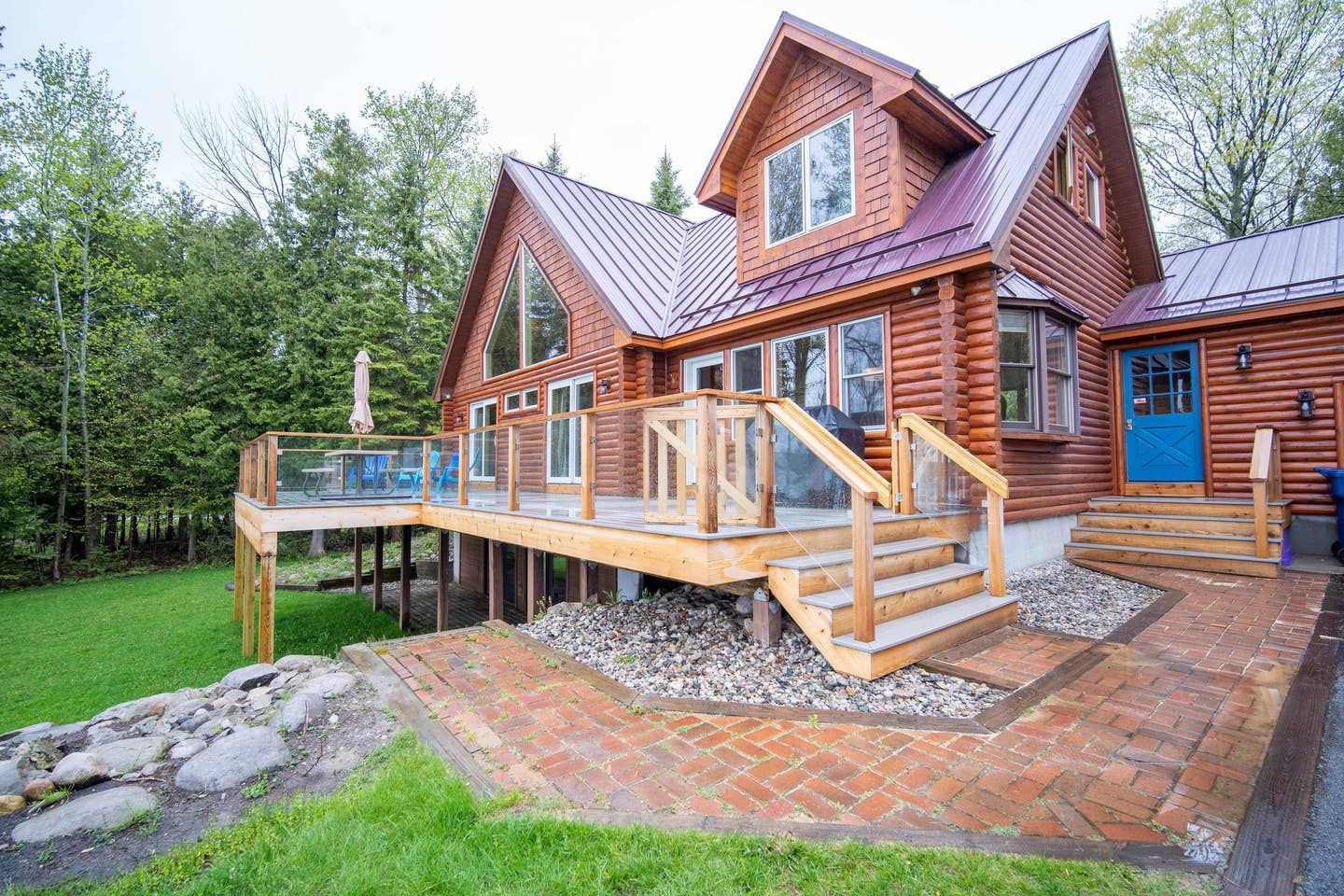$100,000 to $5,000,000
2 years, 3 years, 30 Years
6.75%
Loan Type Bridge Loan, DSCR Loan, Rehab Loan
Property Type 2-4 Units, Mixed use, Multi Family, SFR

Debt Service Coverage Ratio (DSCR) loans are a popular financing option for real estate investors because they focus on the income generated by the property rather than the borrower’s personal income. Michigan, with its diverse economy and rich industrial history, offers numerous attractive locations for securing DSCR loans. Here are the top 10 cities in Michigan where investors can maximize the benefits of DSCR loans:
Detroit, Michigan’s largest city, is experiencing a revitalization with significant investments in real estate and infrastructure. The city’s economy is driven by the automotive industry, technology, and healthcare. The growing demand for rental properties, particularly in downtown and midtown areas, makes DSCR loans a solid choice for financing investments in Detroit.
Grand Rapids has a diverse economy with strengths in healthcare, manufacturing, and education. The city’s vibrant downtown, numerous colleges, and a strong job market contribute to a steady demand for rental properties. DSCR loans are ideal for investors looking to capitalize on the robust rental market in Grand Rapids.
Ann Arbor, home to the University of Michigan, boasts a strong real estate market driven by students, faculty, and healthcare professionals. The city’s economy is anchored by education and research sectors. The high demand for rental properties, particularly student housing, supports the use of DSCR loans in Ann Arbor.
As the state capital, Lansing has a stable economy centered around government services, education, and healthcare. Michigan State University is located nearby in East Lansing, further driving the demand for rental housing. DSCR loans are a practical option for financing real estate investments in Lansing.
Kalamazoo is known for its diverse economy, with significant contributions from education, healthcare, and manufacturing sectors. Western Michigan University and several colleges contribute to a strong student rental market. The steady demand for rental properties in Kalamazoo makes it a favorable location for DSCR loans.
Flint is undergoing revitalization efforts with investments in healthcare, education, and infrastructure. The city’s affordable housing market and consistent demand for rental properties create opportunities for real estate investors to use DSCR loans effectively.
Traverse City, known for its scenic beauty and tourism industry, has a growing real estate market. The city’s economy is also supported by agriculture and healthcare sectors. The high demand for both short-term vacation rentals and long-term housing supports the viability of DSCR loans in Traverse City.
Troy, a suburb of Detroit, is an economic hub with a strong job market in automotive, technology, and financial services. The city’s high quality of life and demand for rental housing make it a suitable location for DSCR loans.
Dearborn is home to the headquarters of Ford Motor Company and has a diverse economy driven by automotive, education, and healthcare sectors. The city’s strong job market and demand for rental properties support the use of DSCR loans for real estate investments.
East Lansing, home to Michigan State University, has a robust rental market primarily driven by students. The city’s economy also benefits from education and healthcare sectors. The consistent demand for student housing makes East Lansing an ideal location for DSCR loans.
Michigan’s diverse cities offer excellent opportunities for real estate investors to leverage DSCR loans. From the revitalizing urban center of Detroit and the academic hub of Ann Arbor to the scenic appeal of Traverse City and the stable market of Lansing, each city presents unique advantages for different investment strategies. By understanding local market dynamics and focusing on income-producing properties, investors can effectively utilize DSCR loans to maximize their returns in these promising Michigan cities.
Are you a lender who wants a free or premium listing on LendDing? Get started today!
Or Contact Us if you have a loan inquiry or question.
If you’re considering investing in real estate in Michigan, or already have a rental property or an investment property you would like to get financing for, understanding the intricacies of this financing is crucial. One financing option you might encounter is the Debt Service Coverage Ratio (DSCR) loan. This article aims to provide a comprehensive overview of DSCR loans, focusing on what they are, how they work, and their benefits for investment properties in Michigan.
A DSCR loan, also known as a Debt Service Coverage Ratio loan, is a type of commercial loan primarily used for investment properties. The DSCR measures a property’s ability to cover its debt payments by comparing its net operating income (NOI) to its debt obligations. In essence, it determines whether the property generates enough income to cover its mortgage payments.
The DSCR ratio is calculated by dividing a property’s net operating income (NOI) by its total debt service (mortgage payments). The formula is as follows:
DSCR= Total Debt Service (The sum of all debt-related payments, including principal, interest, taxes, and insurance, that a borrower must pay within a specified period) / Net Operating Income (The total revenue generated from a property’s operations minus operating expenses, excluding mortgage payments and income taxes).
A DSCR ratio of 1 or higher indicates that the property generates enough income to cover its debt obligations. Lenders typically prefer DSCR ratios above 1.25 to ensure a sufficient cushion for unexpected expenses or fluctuations in income.
When applying for a DSCR loan in Michigan, lenders will assess the property’s income-generating potential and financial stability. They’ll scrutinize factors such as rental income, operating expenses, vacancy rates, and the property’s location and condition.
Lenders may also evaluate the borrower’s creditworthiness, financial history, and experience in managing investment properties. While DSCR loans are commonly used for commercial real estate, they can also be used for multifamily residential properties, hotels, and other income-producing assets.
DSCR loans often allow investors to qualify for larger loan amounts compared to traditional residential mortgages. This can enable investors to purchase larger properties or acquire multiple properties for their portfolio.
DSCR loans are versatile and can be used for various types of investment properties, including multifamily residences, retail spaces, office buildings, and industrial properties. This flexibility provides investors with opportunities to diversify their portfolio.
DSCR loans in Michigan typically offer longer repayment terms compared to conventional loans, with loan durations ranging from 5 to 30 years. This extended repayment period can help investors manage cash flow and achieve greater stability in their investment ventures.
By leveraging financing through DSCR loans, investors can amplify their returns on investment. With a smaller initial cash outlay, investors can potentially achieve higher cash-on-cash returns and enhance their overall profitability.
For real estate investors in Michigan, understanding the basics of DSCR loans is essential for financing investment properties successfully. By evaluating the property’s income potential and maintaining a healthy DSCR ratio, investors can secure financing that aligns with their investment goals. With its flexibility, long-term benefits, and potential for higher returns, a DSCR loan in Michigan can be a valuable tool for building and expanding a real estate portfolio in Michigan.
Are you a lender who wants a free or premium listing on LendDing? Get started today!
Or Contact Us if you have a loan inquiry or question.
AL | AK | AZ | AR| CA | CO | CT | DE| FL | GA | HI | ID | IL | IN | IA | KS| KY | LA | ME | MD | MA | MI| MN| MS | MO | MT | NE | NV | NH | NJ | NM | NY | NC | ND | OH | OK | OR | PA | RI | SC | SD | TN | TX | UT | VT | VA | WA | WV | WI | WY






